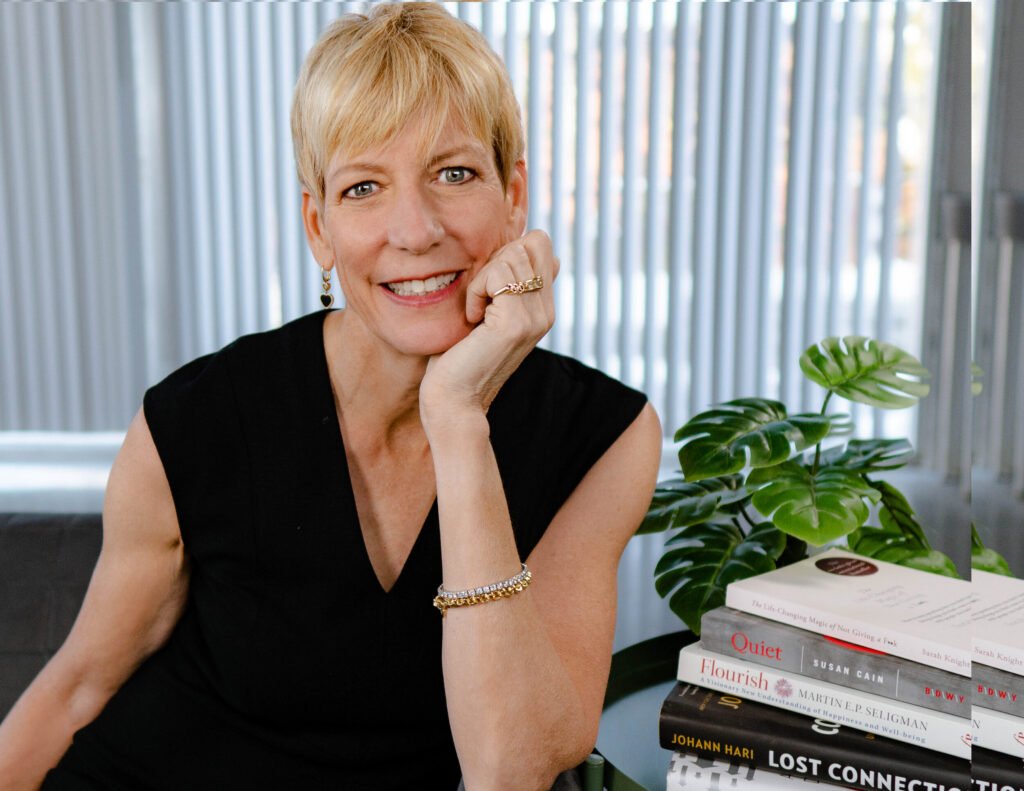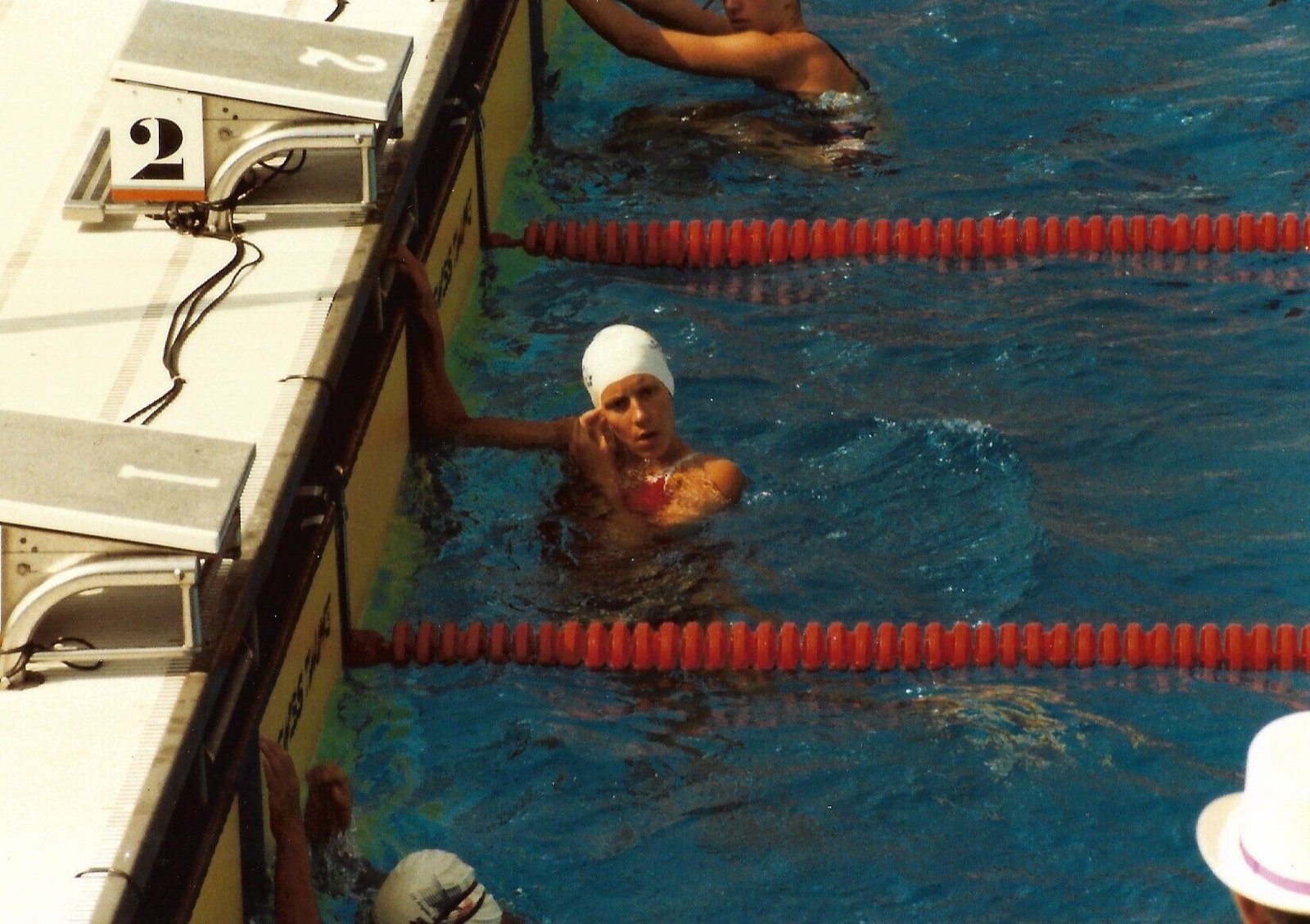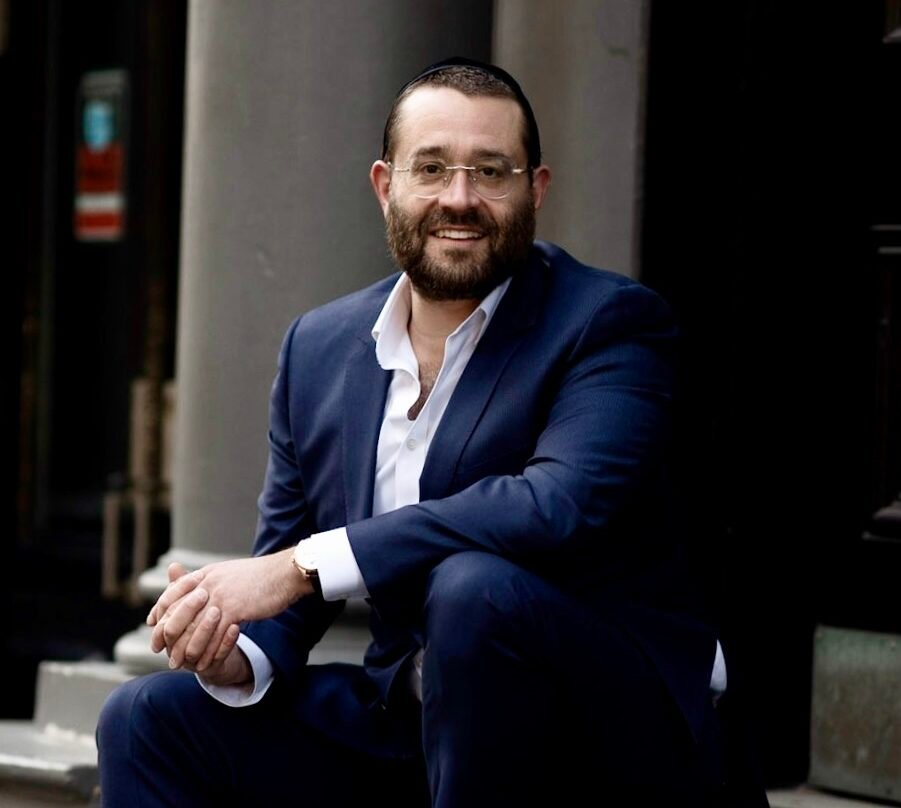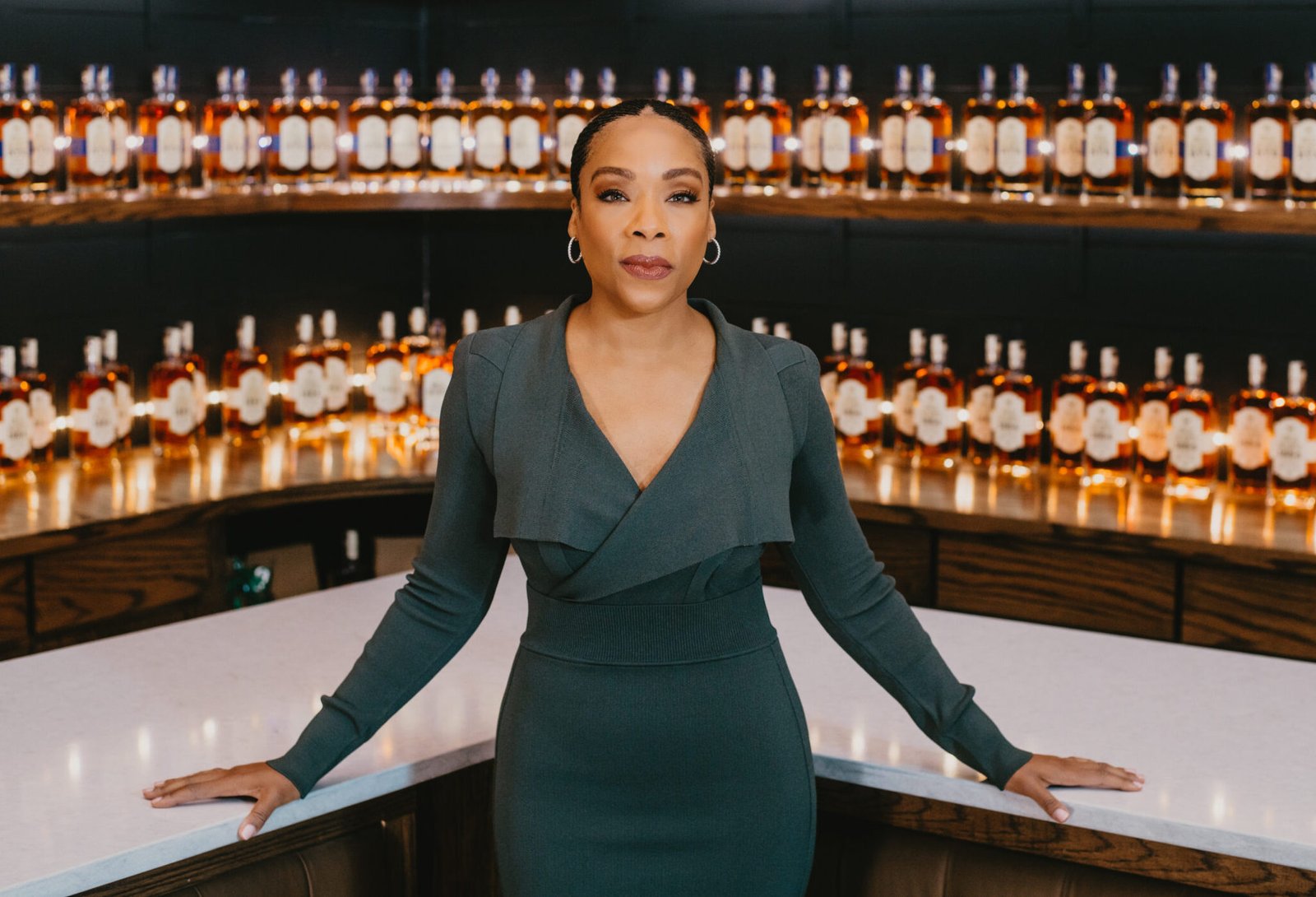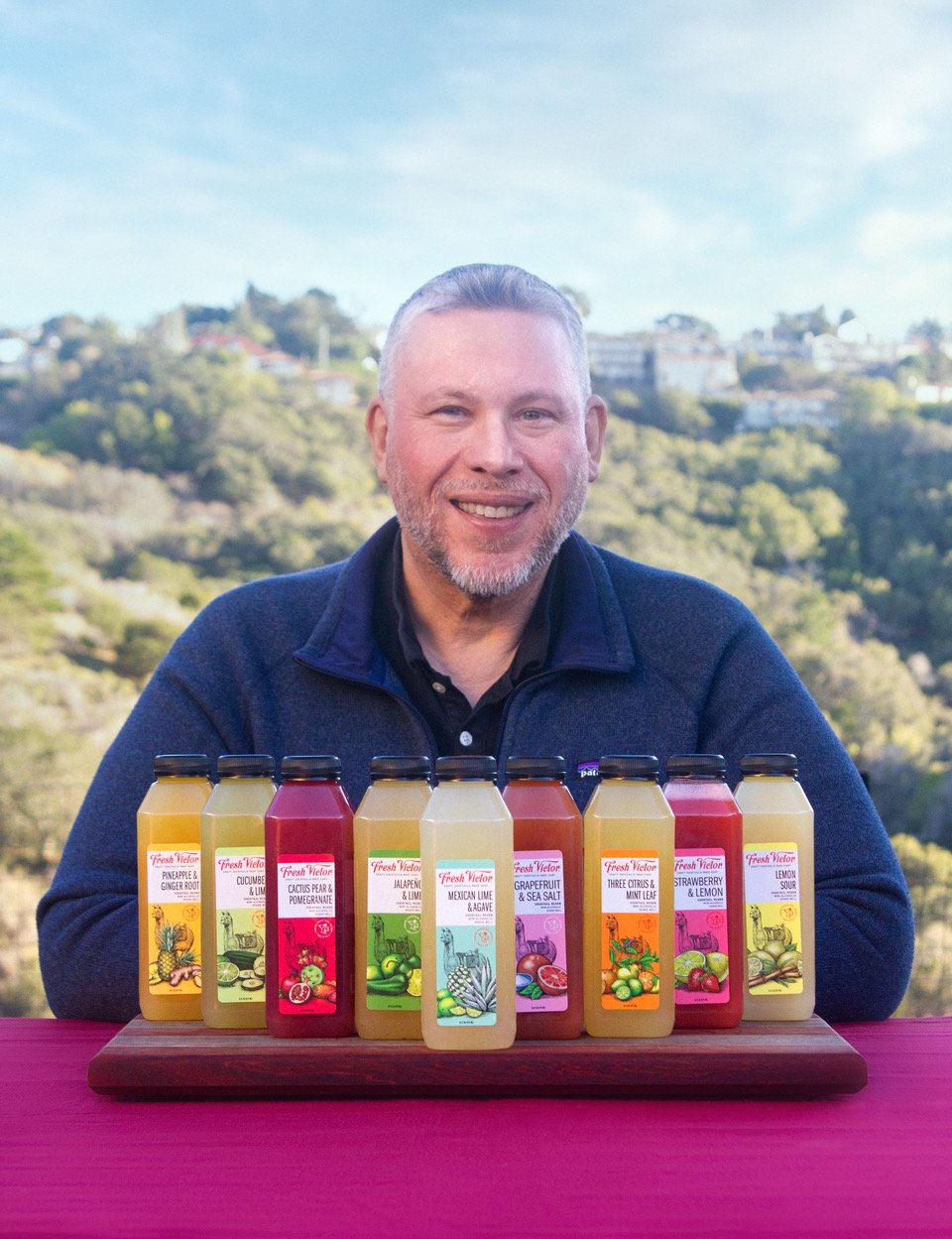I recently went on one on one with Melinda Harrison. Melinda is a former Olympic swimmer, executive coach and the author of Personal Next.
Adam: Thanks again for taking the time to share your story and your advice. First things first, though, I am sure readers would love to learn more about you. What is something about you that would surprise people?
Melinda: People often assume that I still swim. I not only do not swim but I really do not like getting wet. Hot tubs and showers are ok—but even those I need to psyche myself up to get into. Every day when I go to have a shower, I have a routine. The water has to be hot. I use my foot to test the temperature and once I know it is ok, I jump in quickly under the showerhead. There is something about water on my skin. Once I am in, I am fine, but it must be the memory of jumping into a cold pool that creates the trepidation.
Adam: Looking back, what is your sharpest or most significant memory from your Olympic experience?
Melinda: Think about putting an elastic band around your thumb and forefinger and stretching it out as far as you can. The tension on that elastic band is how I can best describe my most significant memory. On one side there is the deep disappointment in my actual performance—I swam slower at the Olympics than I did at the Olympic Trials. I can instantly flash back to that moment and feel the exhaustion as I touched the wall. I went all out and still I swam slower—I was deeply disappointed in myself. On the other side is the sheer joy of being there, experiencing the event as a participant inside the gates of this club that I know I will forever be a part of. The laughter, the friendships, the fun, the awe of the opening and closing ceremonies and the freedom after the competition is over. It is such a unique event because you are there to perform but everyone tells you to enjoy it. So my most significant memory is the tension of those two opposites.
Adam: What is something that would surprise people about the life of an Olympian?
Melinda: The first thing I would say is for most Olympians, it is 99% guts with very little glory. You might be sold on the glory at the end of the road, but these are fleeting moments in a long spectrum of a timeline. Second, it takes everything you have to qualify for the Olympics. “All in” does not have conditions. And there are no guarantees that “all in” is enough. Olympians understand this.
Adam: How did you get here? What failures, setbacks or challenges have been most instrumental to your growth?
Melinda: I am assuming you are talking about my athletic career, but it really applies to my whole life. In the past when I accomplished a goal or won a race, my tendency was to high-five and celebrate and then quickly move on to the next goal. When I failed or faced challenges or setbacks, I used my deep-rooted athlete DNA to figure out where I went wrong and worked to correct the mistake. I can think of many situations that failure changed the trajectory of my future. In 1980, Canada and USA boycotted the Olympics that were to be held in Russia. As athletes we knew that the boycott was a real possibility. I continued to train with the intensity required until the day it was officially announced. After it was announced, I took my foot off the gas pedal and let up on my training. Both countries still held an Olympic qualifier and named a team. My name was not on that roster. I tried to justify my actions by telling myself it was just a list of names for a team, not an actual competing team, but deep down I knew I had given up on myself. I learned the lesson and now when I set a goal, I do not give up. Between 1980 and 1984 I put my efforts toward qualifying for the LA Olympics. By the time I got to the Olympic Trials 4 years later, I knew that I had done everything I could to be at my best. Before my race I felt a deep confidence in the process I had followed. A good example today is my book. In 2013 I set a goal to interview 100 people that had successfully navigated career transition after excelling in their fields of expertise. Most of these 100 interviewees were elite athletes. I made a commitment to each individual I interviewed that I would honor their words and produce something that would help the generation of high performers that followed in our footsteps. Commitment and honoring my word—learning that lesson from 1980 has been instrumental in who I am today.
Adam: What are the best lessons you learned from your experience as an Olympic athlete?
Melinda: Prepare for something bigger than you expect. I had spent 4 years focusing on qualifying for an Olympic team. Every aspect of my physical and psychological training was on that goal. Post qualifying, I did what most athletes do—I celebrated for a couple of days. And then came the cold sweat of realization and terror. I had never once considered what my goals were once I made the Olympic team. And while I might have been physically prepared, I was a far cry from mentally ready. My lesson is that success does not have a finish line.
Adam: What inspired your interest in careers and how to navigate a career transition? What are your best tips for those navigating a career transition?
Melinda: When I work with people, I ask them to think about what inspires them and gives them joy. For me, I love watching people overcome obstacles and succeed—that true hero’s journey. Career transition is one vertical of that. I tell my clients that career transition is not an end of something; it is the building of something else. We are always transitioning. Some transitions like being fired, retired, packaged out, or in the athlete’s case, replaced, are bigger versions of this. Although you may intellectually understand why and what you are going through, it takes time for you to emotionally adjust. As you go through that adjustment process, keep a journal. Ideas, inspiration and thoughts can come at the strangest times. I also recommend that you take stock of what parts of your experience and skill set are relevant for your future and what parts are not. If you are an extrovert in an introvert environment, this is the opportunity to find an environment that suits you. You cannot fix what you are not aware of. Seize this opportunity.
Adam: In your experience, what are the defining qualities of an effective leader? How can leaders and aspiring leaders take their leadership skills to the next level?
Melinda: It takes time to develop good leadership skills, even if you have an aptitude for leadership. To be successful, leaders need to take a multidimensional developmental approach. My “9 Practices for Success” is an example of this approach. They are:
-
Proficiency – the ongoing pursuit of your knowledge, skills and aptitudes
-
Regulation – the ability to manage your behaviors, emotions, thoughts and impulses in complex situations
-
Attitude – a mindset of ongoing learning, improvement, stretching comfort zones and accepting failure as a process of growth
-
Commitment – the commitment to self and others demonstrated through your daily actions
-
Tuning in – the sensitivity to relationships and contributing to something bigger than self. An alternative awareness not of self but of how others respond to your direction
-
Identity – a sense of self, what you stand for and how you demonstrate it on a regular basis
-
Confidence – the belief in your ability to complete tasks and solve problems
-
Emotions – the use of emotions to achieve desired outcomes including motivating and inspiring others
-
Secure base – your ability to create an environment, and teams of people that provide a sense of protection and care
These are building blocks. I believe each of the PRACTICES scaffolds onto each other. There is no end point.
Adam: Who are the best leaders you have been around and what did you learn from them?
Melinda: My dad. He embodied all of those qualities above. He never spoke about leadership. He just lived leadership. Actions speak louder than words.
Adam: What are your three best tips applicable to entrepreneurs, executives and civic leaders?
Melinda:
-
Check your ego at the door. Leadership is not about you; it is about how you guide others to their potential. If you abuse your role, it will eventually undermine both the organizational objective and the people that believe in you.
-
Leadership is a way of being. Understand what you stand for and show up with those values every day.
-
Be aware of the shadow side of your strengths. If a great strength is solving problems, the shadow side is that everyone assumes you will take the lead. With self-awareness, you need to step away from your strength and let others develop their muscles. I would challenge each leader to articulate what their strengths are and then spend time analyzing what the shadows could be and where those shadows might show up.
Adam: What is the single best piece of advice you have ever received?
Melinda: We all concoct our stories around our past experiences that include our thoughts, our beliefs about the world, and the emotions we attach to these beliefs. The best advice I have ever received is to “develop a system to check my stories.” Look for facts. When I catch myself embroiled in my version of reality, I pull out a sheet of paper and draw a teeter-totter. On one side of the sheet of paper, I write only facts that can be verified. On the other side I write down the stories I am telling myself about my situation. I then have a visual of my reality and can ask myself: Is the story I am telling myself true? In certain situations, I will share this with my secure base circle. The people that live in this circle will be honest and help me to decipher what is true versus not true.
Adam: Is there anything else you would like to share?
Melinda: Life is not a straight line toward ever-increasing accomplishments and success. We all have highs and we all have lows. All things eventually come to an end. Endings force us to create new beginnings and this can cause us unease. It is part of the process of change. Try and embrace it as best you can. One day you will discover that the new normal is just normal.


